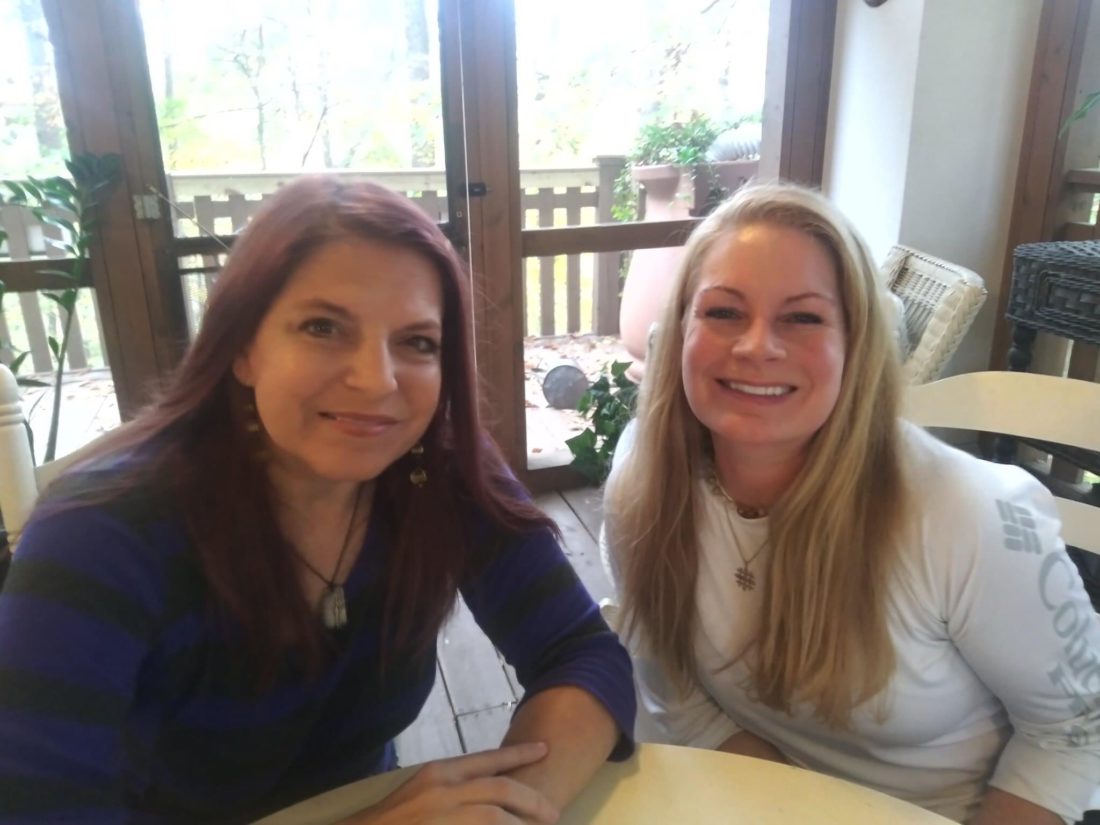When drivers get or renew their licenses, they are asked a simple question: Would you like to be an organ donor? And while 90% of adults in the United States say they support organ donation, according to the federal Health Resources and Services Administration, only 60% actually register to do so.
Both North Carolina and the nation as a whole are experiencing a dire shortage of organ donors. According to Penn Medicine, over 112,000 people nationwide were on the waiting list for a lifesaving transplant as of May 2020. An average of 22 people die each day in the U.S. awaiting an organ transplant, or over 8,000 people per year.
North Carolina is no exception. In 2019 alone, although 437 state residents donated organs and 1,135 received a lifesaving transplant, 114 died due to a lack of donors.
Asheville’s Michele Scheve was one of the lucky ones. The local comedian, radio personality and podcaster recently shared the story of her unlikely kidney transplant with Xpress to highlight the good an organ donor can do.
Scheve’s need for a new kidney traces back to the mid-2000s, when a pregnancy triggered a rare latent condition called Moyamoya disease, which targets the carotid artery and slows the flow of blood to the brain. She then had a major stroke while visiting California and was immediately hospitalized. Numerous surgeries followed — requiring the use of a contrast dye that slowly started to attack her kidneys.
Years after returning to her daily life in Asheville, Scheve learned that she had developed renal failure from her body’s reaction to the contrast dye. She was immediately placed on the lengthy kidney donation list and began the tiring regimen of dialysis three times a week.
At the same time, around four years ago, Marie Smith Lacey began to have recurring thoughts about Scheve. The two had been close friends through high school, part of a class of only 20 girls in Mobile, Ala., but had drifted apart after graduation; they hadn’t been in contact for over 25 years when Lacey reached out through a mutual friend via texting and Facebook.
Although Scheve didn’t tell Lacey much about her medical issues at first, things changed when Scheve broke her leg about two years ago. After Lacey learned of that development, Scheve opened up about her past trials, including her ongoing wait for a kidney. Four prospective donors, she explains, had all been denied by medical staff for different reasons. With a blood type of O negative, Lacey knew she was a universal blood donor and she began to explore the possibility of giving Scheve one of her kidneys.
In July 2019, Lacey started a series of compatibility tests in Mobile as Scheve faced her own tests in Asheville, Wake Forest and at Emory University Hospital in Atlanta. They seemed to be a match, but the process moved slowly. And in January 2020, COVID-19 put the process on indefinite hold. The two waited months for the phone to ring with news of any kind.
Finally, Scheve and Lacey got the green light for the transplant to take place before Christmas. At the beginning of November, the two friends pulled up to Emory at almost the same time; it was the first time they had seen each other in 30 years. And on Nov. 12, doctors successfully replaced Scheve’s kidneys with one of Lacey’s healthy ones. Both are now recovering nicely, and Scheve no longer needs any dialysis.
The ordeal has made the two closer than sisters. Says Lacey of Scheve: “She is the strongest, kindest, and most resilient person I know. She fought her way through devastating illnesses and health complications that would have crushed anyone’s spirit. Michele is a part of me now, and she has forever changed my life.”
“She is forever my family,” Scheve says of Lacey in turn. “There is nothing I can ever really do to repay her. I think of Marie with love and thankfulness every single day as I plan the rest of my life.”
This article is part of COVID Conversations, a series of short features based on interviews with members of our community during the coronavirus pandemic in Western North Carolina. If you or someone you know has a unique story you think should be featured in a future issue of Xpress, please let us know at news@mountainx.com.



Before you comment
The comments section is here to provide a platform for civil dialogue on the issues we face together as a local community. Xpress is committed to offering this platform for all voices, but when the tone of the discussion gets nasty or strays off topic, we believe many people choose not to participate. Xpress editors are determined to moderate comments to ensure a constructive interchange is maintained. All comments judged not to be in keeping with the spirit of civil discourse will be removed and repeat violators will be banned. See here for our terms of service. Thank you for being part of this effort to promote respectful discussion.